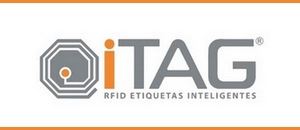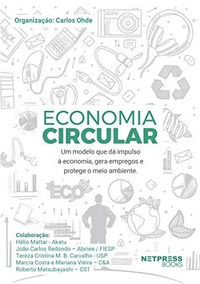Edson Perin
Faced with the growing needs of companies from different sectors, GS1 Brasil, through its business unit Korde, starts to offer specialized consultancy to support companies in the management of Environmental Social Governance (ESG). According to Carina Lins, Sustainability specialist at GS1 Brasil, a significant part of the ESG agenda is related to the transparency and disclosure of data and results on practices related to governance, sustainability, social responsibility and the impact of products and services on society, which usually happens through the dissemination of sustainability reports.
“Despite communicating its results, we know that greenwashing [term that refers to the practiced by companies, public or private industries, non-governmental organizations and even governments, to promote speeches, actions and advertisements about sustainability that do not work in practice] is being increasingly criticized, therefore, there will be no more space in the near future for companies that are misaligned between discourse and practice”, explains Carina. “And part of the sensitive and critical data for ESG is capturing and sharing data in the field.”

She cited as an example the generation of waste and effluents, GHG emissions (greenhouse gases), water consumption, among other operational records, as well as the traceability of internal processes and the companies’ value chain. “And it is precisely in this sensitive point that the consultancy can support, in the optimization and reliability in the collection and sharing of data through automation and traceability based on global standards such as the GS1 GTC – Global Traceability Compliance”, points out the executive.
Interested companies can contact GS1 Brasil and say that they would like information about ESG consultancy or, if they prefer, they can send an email to [email protected]. Through consultancy, an initial diagnosis is carried out to identify the ESG practices and initiatives that the interested company already has in order to identify and explore opportunities.
Marcelo Oliveira Sá, from GS1, explains that the consultancy operates in the mapping of operational production processes, internal logistics and customer service. “The focus encompasses sustainability and circularity practices – what exists and what can be improved; opportunity to automate production processes for waste management, such as control and traceability of each waste that is being generated; and search for opportunities to improve the traceability and circularity of products and services to the customer, with unequivocal and persistent identification and standards for traceability”.

Any company from any sector can be served and there are no restrictions by field of activity. “First, it is necessary to assess the customer’s demand, define a scope of work and the man-hour effort, so that the work values are defined”.
KPMG Survey of Sustainability Reporting 2022
Companies in the Technology, Media and Telecommunications (TMT) sector have shown remarkable growth in reporting considering the ESG agenda, contemplating carbon reduction targets in recent years, advancing from 61% in 2017 to 81% in 2022, and occupying now the third position among several sectors.
The TMT industry has long been socially aware of environmental stewardship and is leveraging resources and visibility to innovate and influence in this area. Another piece of data is that the adoption of the Task Force on Climate Related Financial Disclosures (TCFD) recommendations by TMT companies jumped from 20% in 2020 to 45% in 2022, surpassing other important sectors.
These are some of the conclusions of the 12th edition of the study “KPMG Survey of Sustainability Reporting 2022”, which analyzed financial, sustainability and ESG reports and websites of the 100 largest companies from 58 countries, territories and jurisdictions, totaling 5,800 companies. TMT organizations represent 10% of the total sample, ie 580 companies.
Márcio Kanamaru, partner-leader of Technology, Media and Telecommunications at KPMG in Brazil and South America, says that the study shows the progress of companies in the sector and the main strategies they can implement in the preparation of sustainability reports.
“Among them, it is worth mentioning assessing the impact of climate change on financial statement disclosures and aligning the sustainability and ESG report with the main mandatory and optional reporting formats. In addition, strategies involve knowing stakeholder expectations and creating ESG reports based on materiality assessments and benchmarking,” he says.
TMT leads the ranking among the other sectors in assurance reports, progressing in the last three editions of the study, with an assurance rate of 64%, well above the average of the complete sample. Nearly half (49%) of the total global sample obtained independent third-party assurance in 2020, but by 2022 this rate has dropped to 47%.

Independent external assurance of sustainability reports increases the credibility of the information and encourages trust with stakeholders. The initiative, which usually starts with limited assurance, after markets and regulatory requirements mature, evolves into more adequate assurance.
Nelmara Arbex, leading partner of ESG Advisory at KPMG in Brazil, states that “we are entering a period in which transparency and quality of information on the environmental, social and ethical aspects of business are of increasing value to all stakeholders. that relate to companies. This is no different in this industry. Sustainability (or ESG) reports, aligned with international standards, are an excellent instrument to demonstrate this commitment. In the end, the way in which ESG aspects are understood and managed also serves to assess the quality of the company’s leadership”.
For example, considering all sectors, an average of 40% of the total sample discloses information about the loss of biodiversity or natural resources as a business risk. In TMT, only 30% of these companies mention risks related to biodiversity loss, a number significantly below the average, also highlighting possible opportunities for companies in the sector.
There is a relatively new international standard for this — the Task Force on Nature Related Financial Disclosures (TNFD). Preparing reports using it is very relevant in times of extreme biodiversity loss and a new trend.



















